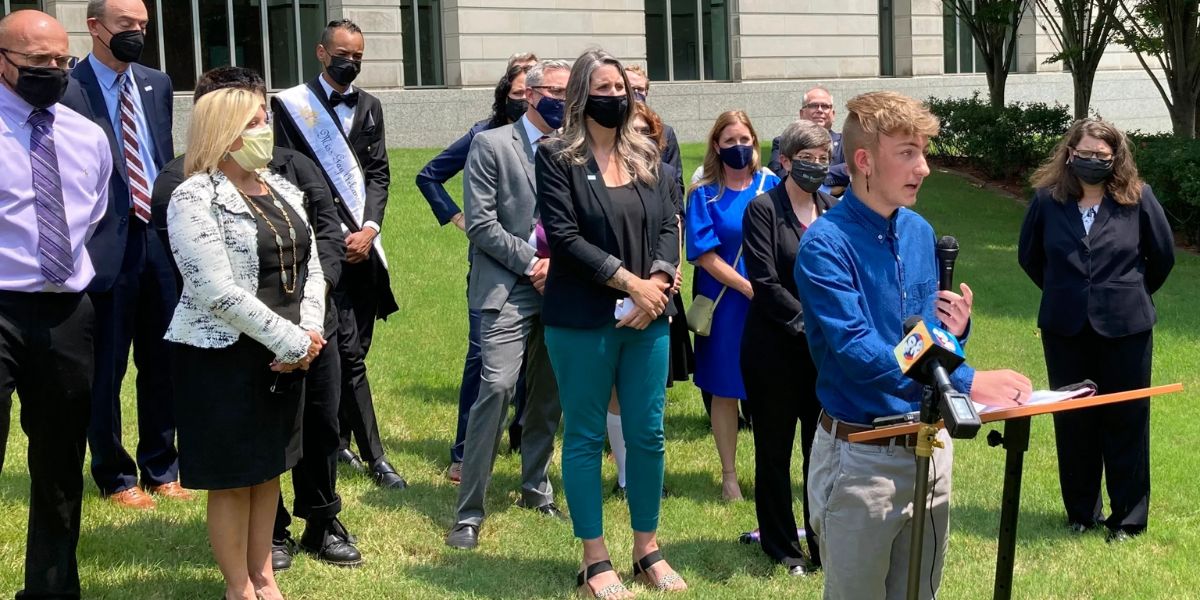Federal Court Hears ACLU Challenge to Arkansas’ Transgender Care Ban
On Thursday, federal appeals court judges in St. Louis heard legal counsel for the national ACLU and the US Department of Justice argue that transgender minors have a constitutional right to gender-affirming care, while Arkansas’ deputy solicitor general said a state law prohibiting such care was in the best interests of youth and not discriminatory.
The 2021 Save Adolescents from Experimentation (SAFE) Act prohibits physicians from offering gender transition treatments such as hormones, puberty blockers, and sex reassignment procedures to those under the age of 18.
Four Arkansas families and two physicians, represented by the American Civil Liberties Union of Arkansas, filed a federal court challenge to the SAFE Act, which was overturned in June 2023 by U.S. District Judge James Moody, who stated that the SAFE Act discriminated against transgender people and violated the First and Fourteenth Amendments.
Arkansas Attorney General Tim Griffin filed an appeal with the United States Court of Appeals for the Eighth Circuit in July 2023. The state has maintained that there is no scientific evidence that gender-affirming care benefits children and that the repercussions can be damaging and, in many cases, permanent.
The appeals justices asked if the state statute would prohibit health care professionals from administering testosterone for situations other than gender-affirming care therapy, Dylan Jacobs, Arkansas’ deputy solicitor general, stated, “The statute does not prohibit that.” The legislature was not expressing concerns about testosterone.”
Regarding the district court’s decision to overturn Arkansas’ restriction on transgender care, Jacobs stated that “there are certainly risks, including sterilization” in the therapy and that it was not the district court’s responsibility to impose its policy judgments.
ACLU attorney Chase Strangio, deputy director of the organization’s LGBTQ & HIV Project, told the appeals court Thursday that Moody’s ruling should be upheld, noting, in part, that the state law undermines constitutional guarantees of equal protection and “supplants the judgment of parents and their abilities to determine medical care.”
Griffin stated that his agency is “fighting to protect our state’s children from dangerous medical experimentation.” Moody’s 80-page decision knocking down the Arkansas legislation upheld the testimony of medical experts who testified for the plaintiffs that gender-affirming care is safe for youngsters.
The state of Arkansas, according to Moody’s report, “failed to prove that its interests in the safety of Arkansas adolescents from gender transitioning procedures or the medical community’s ethical decline are compelling, genuine, or even rational.”
In 2021, a letter from the American Medical Association to the National Governors Association referenced the Arkansas SAFE Act, saying, in part: “Arkansas recently enacted SAFE Act, and similar bills pending in several other states would insert the government into clinical decision-making and force physicians to disregard clinical guidelines.”
The American Medical Association (AMA) stated that gender-affirming treatment “must be sensitive to the child’s clinical situation, nurture the child’s short and long-term development, and balance the need to preserve the child’s opportunity to make important life choices autonomously in the future.”
The 8th Circuit Court of Appeals did not say when it would rule on the Arkansas statute.
As of late November, identical legislation has been enacted in 22 states, with legal challenges filed in several of them. All of the cases have yet to be heard by the United States Supreme Court.











